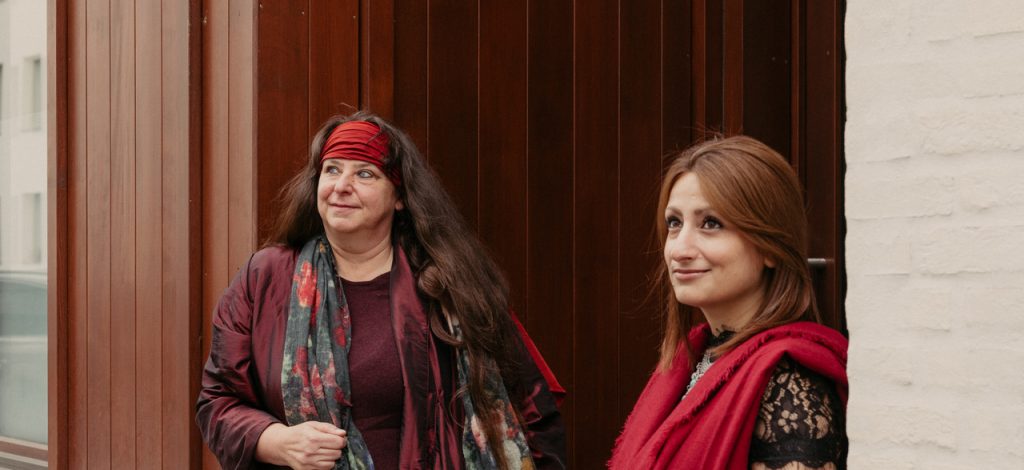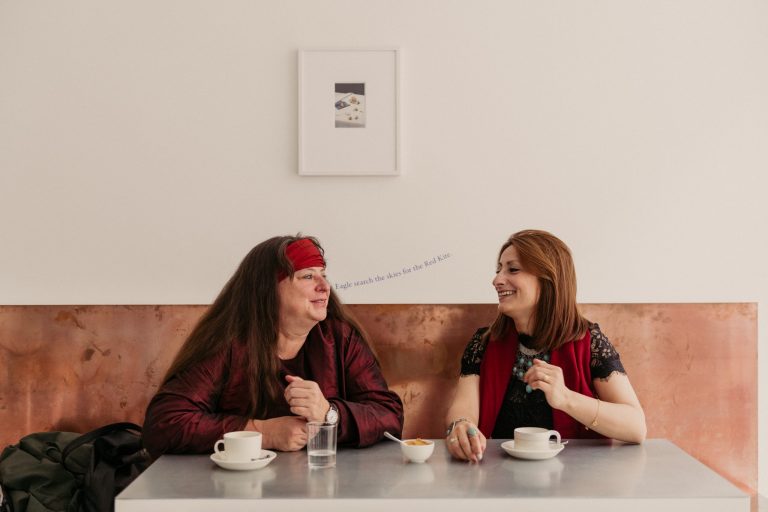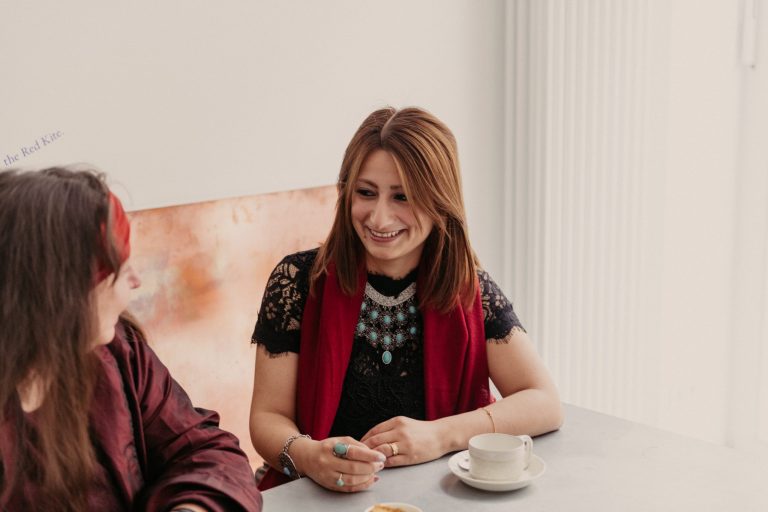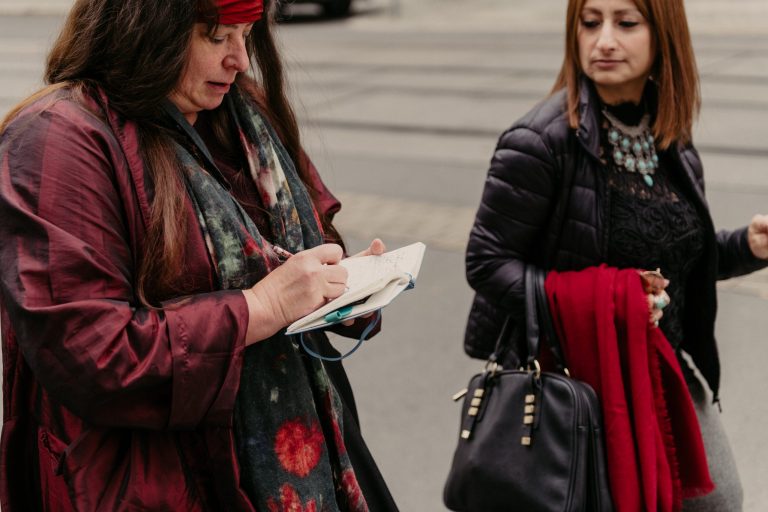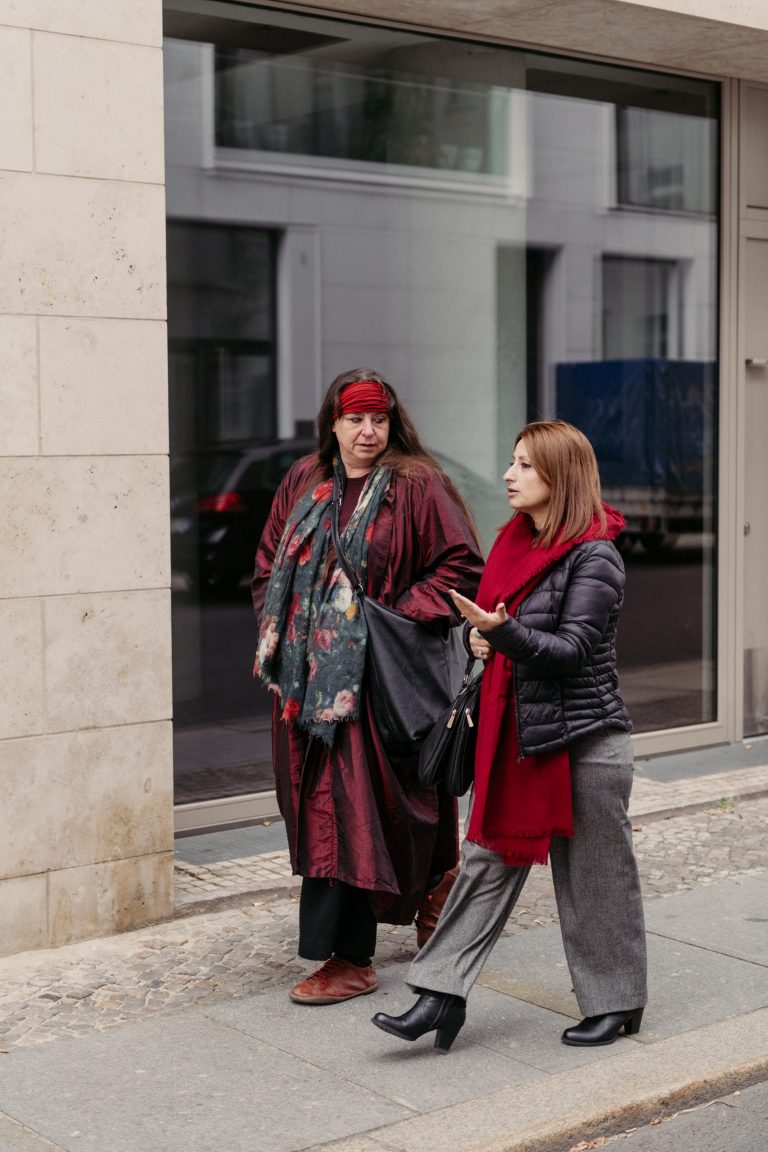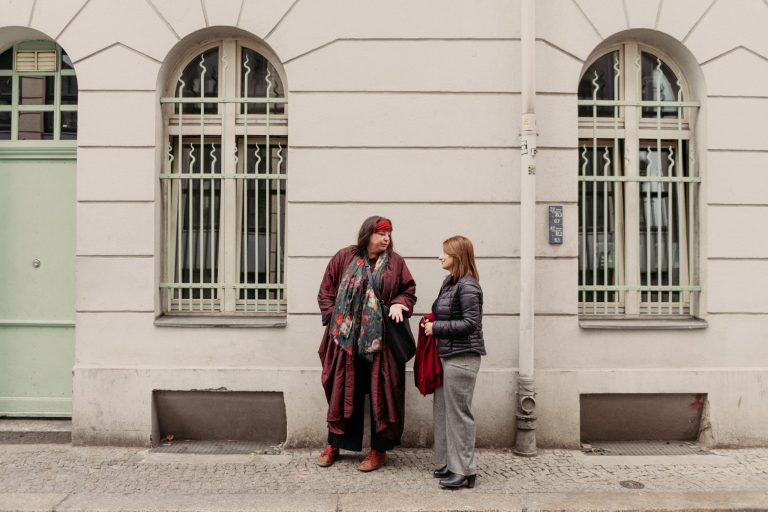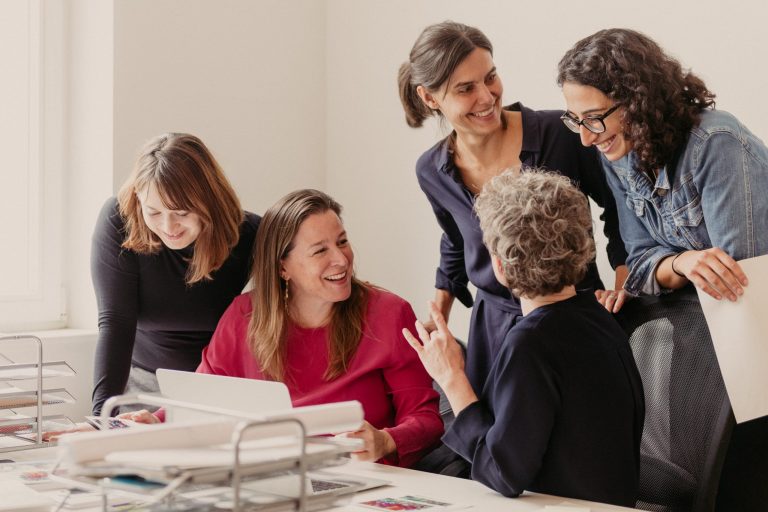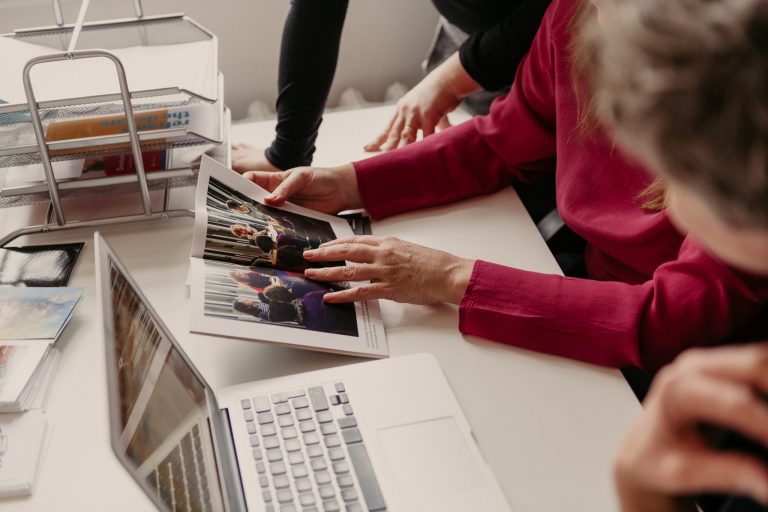Weiter Schreiben (Keep Writing) by Wir machen das/ wearedoingit e.V.
This initiative of 100 women enables female refugee writers to continue their work in exile. Together with renowned German authors like Annett Gröschner, Nora Bossong, and Nino Haratischwili, the work of the artists in exile is placed in the foreground. With the prize money an artistically designed print magazine will extend the current online platform.
“The publishing plans for this unique exchange will create stories of far-reaching impact. Despite the biographical ties, the quality of this literary work is in the foreground. Author Annika Reich and her co-initiators not only succeed in closing a system gap, they also bring calm and reflection to an agitated debate”, says the jury.
Report on Keep Writing.
Platform for a common language
At first glance, the two women putting their heads together at a café in the heart of Berlin comprise an unusual duo, for they come from different generations, cultures, and countries. They speak different languages. What connects Widad Nabi, who was born in Syria in 1985 and fled from the war to Germany in 2014, has in common with Annett Groeschner, who is originally from Magdeburg and 20 years her senior, despite all of aforecited hindrances is their love for literature. Both are poets and authors who explore their chosen home of Berlin through their writing. For a year now, they have been meeting at irregular intervals to go on discovery tours through Germany’s capital – to discover the world together as an intercultural tandem for the literary portal Weiter Schreiben (Keep Writing).
Weiter Schreiben was launched in May 2017 by Annika Reich and Ines Kappert as one of the Wir machen das (We’re doing it) initiatives, an alliance consisting of new arrivals and locals founded in 2015 by an original 100 women from art, science, and public life. Weiter Schreiben aims to give authors from crisis regions a platform for their work – an essential basis for being able to continue to write at all. Artistic Director Annika Reich is herself an author and activist and knows that “writers don’t produce work to be put in drawers.” Getting published and being read are equally relevant. Refugees in particular are often facing the problem of lacking publishing media, in part because they have been stripped of their linguistic home.
“An important tool against racism and fear of the unknown”
Widad Nabi had that experience after her arrival in Germany. In Syria, she had been writing since the age of 18 for numerous Arab-language magazines and newspapers. In Germany, her refugee status was like dropping a curtain over her previous life. “In the beginning, I couldn’t understand German nor did I have contacts in the literary and media world. I felt so abased and isolated,” she says. With the online portal weiterschreiben.jetzt, Annika Reich and her team have created a new home for the writings of Nabi and other authors who have shared a similar fate. The bilingual portal for both literature and music from crisis-stricken regions collaborates with translators who render Arabic articles in German to facilitate new readership. That simultaneously generates diversity on the German literary scene – which, in Nabi’s eyes, is “an important tool against racism and fear of the unknown.”
Yet Weiter Schreiben does more than just publish. “It was important to us from the start to make it easier for our authors to get their start on the German literary scene across all levels,” says Reich. That includes learning fundamental things like issuing an invoice with a tax identification number and understanding the structures of the book market as well as exchange with local authors. “In other initiatives, our experience was that direct contact was the most helpful,” according to Reich. That is why the tandem principle is essential for Weiter Schreiben. These exchanges provide concrete insight into living and working as an author in Germany and well as dialog of substance.
“Syrian authors often write more emotionally, while Germans write more rationally. It is only when these two approaches are united that a complete picture of the world is created.”
This intercultural exchange “broadens the horizons” of the local authors, too, says Groeschner: “Berlin has now become a Noah’s Ark for authors from all over the world,” she says. “All of them leave their mark on the city and on the German language, which is being enriched with new vocabulary.” Nabi and Groeschner alike find it fascinating how writing styles are so different in the West and the East. “Syrian authors often write more emotionally, while Germans write more rationally,” says Nabi, whose works often feature words like “love” and “feeling” as central themes while Groeschner’s style was once described as “poetry of facts.” Nabi says: “It is only when these two approaches are united that a complete picture of the world is created.”
When finding tandem partners, Reich and her team endeavor to match two people who could align thematically and biographically. Many of the local authors themselves have experience with war or life under a dictatorship, such that they have a certain sensitivity in their social interaction with partners from crisis regions, some of whom have been traumatized. There are also parallels in the lives of Groeschner and Nabi. Groeschner grew up in East Germany, where she “had problems with the state security services early on.” An experience Nabi shared in while writing for Syrian opposition newspapers. Additionally, East Germany is a state that no longer exists, with part of the author disappearing along with it – just like Nabi has to process the loss of her Syrian homeland.
“Reading each other’s writing was our first shared language.”
What happens with memories when their home has disappeared? That is a central question in the works of both authors. During their walks, they regularly search for traces of remaining fragments from a lost past, for the last stones standing and the feelings living in them like the souls of long-forgotten biographies. Each patrol produces stories. Groeschner’s writings can also be found on weiterschreiben.jetzt. “Each tandem structures their own collaboration,” she says. “In theory, I don’t have to write at all. But it was important to me from the start to react to what Widad is processing in her writing. Back when she barely spoke any German, the mutual reading of our writing was our dialog, our first shared language.”
Groeschner is also one of the 100 women who co-founded Wir machen das. When the tandem query came, she immediately accepted – just like all of the other 16 authors who have been asked. For her, continuing Weiter Schreiben also has political symbolism: “Every day, there are people arriving in Germany who need our support. We shouldn’t just sit around idly.”
“Weiter Schreiben presents talented artists who merit being seen and read.”
To make the portal accessible to a broader audience, Weiter Schreiben’s first anthology will be published with a collection of writings from the authors. There will also be a printed magazine in addition to the portal in the future. “Having a presence at stationary news and magazine stands provides a different kind of visibility and prestige,” says Project Director Christiane Kuehl, who herself is a freelance author, editor, and theater professional. The magazine also wants to provide a venue for the authors themselves. Up to now, weiterschreiben.jetzt has had a clear focus on their writing. Kuehl says: “That is important to us. After all, we publish this writing irrespective of an author’s background because they are solid works of literature.”
Weiter Schreiben’s editor Dima Albitar Kalaji says she also selects the Arab-speaking authors primarily based on the quality of their work. And for the magazine, which like the digital portal will be in German and Arabic, they are looking to combine political and poetic subjects – specifically to avoid cognizance the refugee aspect in every sentence. Reich says: “Weiter Schreiben presents talented artists who merit being seen and read. We want to reach as many people as possible with this message.”

